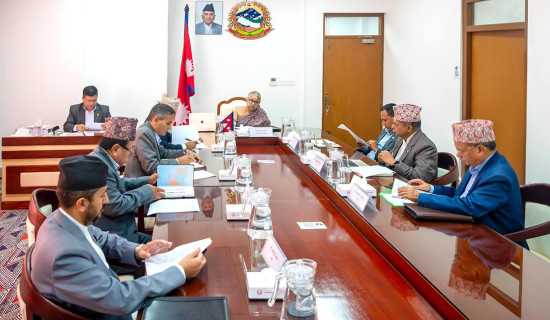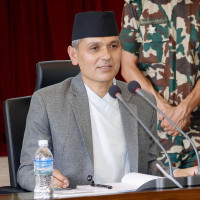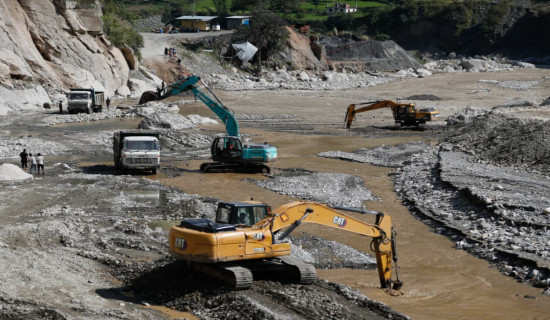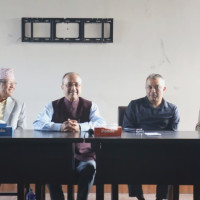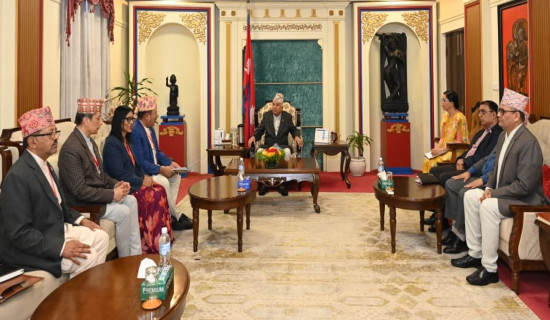- Friday, 10 October 2025
Reforms Needed To Prevent Torture
The statute of limitations for torture in Nepal is just six months. There are very few democracies in the world with such a restrictive statute of limitations as Nepal. This timeframe is inadequate as it effectively bars victims from accessing justice and violates international human rights standards. Despite the rampant use of torture and ill-treatment, the government refuses to amend the law. Nepal ought to bring legislative reforms to address the ill-treatment and torture of prisoners.
Despite Nepal’s signing of the United Nations Convention Against Torture (UNCAT) and the International Covenant on Civil and Political Rights (ICCPR) in 1991, a significant gap remains between its legal commitments and enforcement. Human rights organisations like Amnesty International and Advocacy Forum-Nepal stated that successive governments failed to investigate allegations of torture and custodial deaths seriously.
Legal obligations
According to Advocacy-Forum, Nepal, there have been at least 109 documented cases of torture and custodial deaths at detention centres between 2018 and 2023. However, this number is likely a fraction of the total incidents, as many victims do not report torture cases. Victims face insurmountable barriers to reporting torture and ill-treatment. Victims often have to go back to the same police station where they were tortured to report the incident. Police officers often refuse to register a First Information Report (FIR), the first step in an investigation, despite their legal obligations as outlined in Nepal’s Criminal Procedure Act (2017).
Furthermore, Nepal’s six-month statute of limitations severely undermines a victim’s chance to get justice. Victims, particularly children, often take much longer than six months to process the trauma. Most children do not have a fully developed brain or the resources to fight for justice. Collecting medical reports, obtaining expert opinions, and preparing a case can be a time-consuming process. Most importantly, within six months, many are unable to secure legal representation to navigate a complex legal landscape.
Very few cases of custodial torture have been investigated, and even fewer people have been held accountable. Many victims of torture come from marginalised backgrounds and are scared of reporting torture and ill-treatment as they fear reprisal. Unfortunately, there is also a history of the police fabricating charges when allegations of torture are made. This is particularly true for marginalised victims who come from rural areas, as they do not have the resources to hire lawyers who can advocate on their behalf.
If a case reaches the investigative stage, it almost always exonerates the perpetrators, as investigations are neither impartial nor independent. In some cases, the government has offered financial compensation, but monetary relief has been provided arbitrarily. In some extreme cases, police officers accused of human rights abuses have been promoted. Nepal needs to urgently amend the National Penal Code (2017) and abolish the statute of limitations. Most countries either have no statute of limitations for reporting torture or provide decades to report the incident. Six months to report an incident is embarrassingly low, and it must change. The statute of limitations should be brought in line with international standards.
Torturing people is inhumane, dangerous, and gravely undermines international human rights obligations. Human rights organisations have also documented a high prevalence of children being tortured in Nepali prisons. Children are beaten with pipes and canes. To exacerbate the situation, juvenile detention centres are severely overcrowded. Organisations like the National Human Rights Commission and Child Workers in Nepal have drawn attention towards the severe overcrowding of juvenile detention centres in Nepal. Children have little to no recourse to report incidents of torture.
Accountability
It has been approximately five years since the National Human Rights Commission named 286 people, mostly police, military personnel, and former Maoist guerrillas, suspected of torture and extra-judicial killings. Very few have faced accountability. Successive governments have failed to take human rights abuses seriously. The government must act without delay and hold individuals accused of grave human rights abuses accountable. The status quo is failing victims of torture, and the failure to hold perpetrators accountable is fostering a culture of impunity. An independent mechanism free of political influence is the need of the hour.
One important solution is for Nepal to ratify the Optional Protocol to the Convention Against Torture (OPCAT). OPCAT requires countries to establish independent bodies known as National Preventive Mechanisms, which empower international and national bodies to visit detention centres independently without prior notice. It will enable international experts, free from any political influence, to speak with detainees and conduct investigations. These independent visits can play a crucial role in promoting accountability. It will also enable international experts to engage in a constructive dialogue about the systemic changes necessary for the better treatment of detainees.
Thapa, who holds a Juris Doctor from the University of British Columbia, is a Canada-based lawyer.



